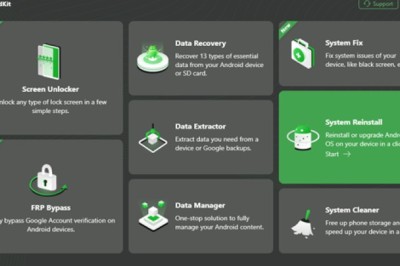views
Although technology has certainly made life more convenient and efficient for people, recent advancements have also given rise to a number of cybersecurity threats such as hacking and data theft. Breaches in security can be expensive, regardless of a business’s size or industry. In fact, data breaches cost the global economy more than $100 billion every year.
Studies conducted by Heimdal Security show that around 60% of employees who have been discharged steal important company information after resigning their post. Meanwhile, 20% of employees are the cause of accidental and careless data leaks.
All this proves that organizations and companies need to be vigilant when it comes to their cybersecurity.
The role of human resources in cybersecurity
In recent years, organizations have realized that cybersecurity is an essential part of any successful operation. Besides being the only thing that stands between a hacker and important company data, a proper cybersecurity network also acts as a strengthening factor for employee and customer confidence.
For cybersecurity to be successful, training and education shouldn’t be limited to the IT department. Knowledge of cybersecurity should be distributed evenly throughout the company to ensure everyone’s safety. And what better partner to have for this job than the human resources department?
Considering the majority of cybersecurity breaches happen as a result of careless employee actions, HR can play a crucial role in cyber threat mitigation.
Four Ways Human Resources Can Deal with Cybersecurity Threats
In section, we explore the four (4) major ways HR can help with cyber threat mitigation.
Complying with regulations
The government and other regulatory bodies around the world set strict guidelines on how companies collate and utilize user data. In order to quickly adapt to privacy changes,employees need to be properly trained and educated in the current regulations. Traditionally, this responsibility is assigned to the reliable hands of the IT department. However, with the recent shift in the cybersecurity landscape, the job is becoming more of a human resource obligation.
Human resource teams — alongside IT personnel — are now responsible for creating seminars and training programs that introduce and familiarize employees with cybersecurity policies. Furthermore, they are responsible for keeping track of employee cyber hygiene and information authority. This has proven to be a much more effective strategy than what has been traditionally practiced, especially since the HR department is already closely affiliated with company employees.
Data access and authorization
Does your business have a habit of hiring remote workers globally? Businesses handle thousands upon thousands of sensitive information every day — from employee data to customer information. Assigning appropriate authorization and access to employees can help prevent unwanted or accidental data breaches. Human resources are yet again placed in a great position to help determine which employees should be granted access to which databases.
The end of an employee’s contract is yet another critical moment for companies. The majority of malicious insider issues emerge after an employee is discharged from their post, regardless of whether it was mutually agreed upon or not. It’s up to the HR department and IT team to keep the security of company information intact.
Together, these two fronts can coordinate during the termination process to limit or completely revoke employee access as soon as possible — preferably within the first 24 hours of an employee’s departure.
Incident response
Accidental disclosure of sensitive company information is one of the leading reasons for cybersecurity breaches. In the off-hand chance that this happens in your organization, appropriate action needs to be taken step-by-step in order to prevent further damage.
Creating a fool-proof incident response plan used to be the responsibility of a company’s IT department. However, since HR is typically the first people to receive such requests from employees and other stakeholders, it’s become more apparent that handing over the reigns can make the overall process much more efficient.
Culture of cybersecurity
Constructing a cybersecurity culture is yet another responsibility that has been handed down to the HR team from the IT department.
Cybersecurity culture is essentially the ecosystem by which cybersecurity lives and breathes in your organization. In this process, HR teams are tasked to create seminars and trainings to strengthen cybersecurity education within an organization. They are also in charge of creating consequences aligned with varying levels of infractions.
In case your human resources department is not as well-versed with cybersecurity yet, a great way to remedy the issue is to let HR attend cybersecurity seminars. These initiatives help improve employee experience as well as increase their overall understanding of appropriate cyber hygiene.
Final thoughts
A strong cybersecurity culture begins at the top of the organization and must include constant development and understanding for leaders in all critical divisions. For this to happen, the HR department and the IT department must be aligned in their response plans, especially in situations that involve current and previous employees.





















Comments
0 comment